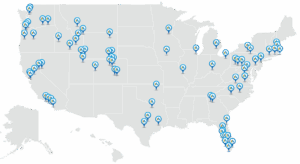Are You Prepared for the 2021 Wildfire Season? Understand Your Obligations as an Employer.
According to the recent March report released by the National Centers for Environmental Information, about 44% of the Continental United States was considered to be in drought conditions on March 30, 2021. The worst areas include Texas, California and portions of the Northeast. In addition, March snow cover was approximately 237,000 square miles lower than the 1981 to 2010 average and ranked as the smallest coverage in the previous 55 years.
All indications suggest that this year’s Wildfire Season will be intense.
In 2020, over 52,113 wildfires burned almost 9 million acres of forest, residential and improved land.
Washington State is considering implementing the same requirements as California. These requirements require that employers with workers who may be at risk of exposure implement controls and perform monitoring to ensure that the workplace is safe and that adequate protection measures have been put into place. The types of workplaces most affected are those in agriculture, construction, public works and others requiring outdoor work such as delivery drivers, distribution companies, and workers in loading dock areas.
On July 29th, 2019 California’s OSHA passed an emergency regulation to help prevent worker exposures to harmful levels of wildfire smoke.
How does the emergency regulation affect me?
This rule, documented in the California Code of Regulations, title 8, section 5141.1 applies to most workplaces when the Air Quality Index (AQI) is 151 or more and where an employer may reasonably anticipate harmful exposures to wildfire smoke. This regulation requires employers to take steps to reduce worker exposures, provide training and monitoring. Other states, such as Washington, may soon institute a similar regulation. Beyond regulatory drivers, smoke is a recognized hazard and employers have a duty to protect their workers. Apex is ready to assist and provide solutions to these challenging issues.

What exactly is the AQI?
The AQI is a nationally uniform color-coded index developed by EPA for reporting and forecasting daily air quality. The AQI reports the most common ambient air pollutants that are regulated under the Clean Air Act, including very small particles that cause respiratory problems, called particulate matter (PM2.5). The AQI informs the public about air quality in the area, tells who may be affected, and provides steps to take to reduce exposure when pollution levels are unhealthy (EPA, 2021).
What are my duties as an employer?
Protection from Wildfire Smoke, in California, applies to workplaces where the employer anticipates that employees will be exposed to wildfire smoke, or when the AQI for PM2.5 particulate is 151 or greater (“unhealthy”). Initially, employers must:
- Check the current AQI before each work shift and periodically, or;
- Measure current PM2.5 levels with a direct reading instrument;
- Communicate the AQI results to employees; and
- Provide Training on wildfire smoke health effects.
What actions are needed to comply when AQI >151?
- Implement engineering or administrative controls to reduce employee exposure to PM2.5;
- Alert employees when air quality is harmful, and what protective measures are available;
- Provide NIOSH-approved respiratory protection, such as N95 respirators for voluntary use;
- If the PM2.5 AQI is >500, the use of NIOSH approved respirators is required;
- The use of surgical masks, bandanas, neck gaiters, scarfs, etc. is not allowed for respiratory protection; and
- Provide training on proper use of respirators.
What solutions can Apex provide?
- Deploy Direct Reading instruments to monitor PM2.5 and other Indoor Air Quality (IAQ) parameters, provide real time AQI rating 24/7;
- Remotely monitor the AQI at your facility via WiFi connected Direct Reading Instruments—view data from your laptop 24/7;
- Manage IAQ data for your facility to comply with the requirement to communicate to employees and customers alike, and make informed decisions;
- Provide immediate Alerts when air quality approaches or exceeds AQI thresholds;
- Provide training on the Regulations and health effects (issue Certificates of Training) to meet employer requirements under California Section 5141.1, and also to meet the OSHA Hazard Communication obligations;
- Develop or review Employer procedures/plans for compliance and risk management;
- Evaluate HVAC systems, filters, maintenance and controls as it relates to the wildfire smoke reduction; and
- Deployment of portable HEPA air filtration devices (AFDs) to reduce PM2.5 and other IAQ particulate hazards when AQI exceeds thresholds.
Apex Associated Press (Apex AP) represents contributions from various authors within the Apex professional community.
Disclaimer
Please note that all content provided on this blog is for informational purposes only and does not necessarily represent the views, opinions, strategy, or methods of Apex Companies, LLC (Apex). Apex makes no representations as to the accuracy or completeness of any information on this site or found by following any link on this site. Apex will not be liable for any errors or omissions in this information nor for the availability of this information. Apex will not be liable for any losses, injuries, or damages from the display or use of this information. Apex reserves the right to edit or delete any comments submitted to this blog without notice to whoever wrote, submitted or posted the comment. Anyone who submits or posts any material to this blog waives any right or claim to privacy with respect to the content submitted or posted. By submitting or posting any content, the person or entity that does so is representing that they believe it to be accurate, have a legal right to the content, and have legal authority to submit or post it. Please do not submit or post anything if this is not the case. Please consider these requirements carefully when submitting or posting comments, photographs or other material relating to third parties who may have privacy, ownership or other rights implicated by the content. Readers are encouraged to seek professional legal, scientific, and/or engineering consultation concerning specific environmental, engineering, or other concerns. If you would like to contact Apex for more information regarding professional consultation to address your specific concerns, click here.






